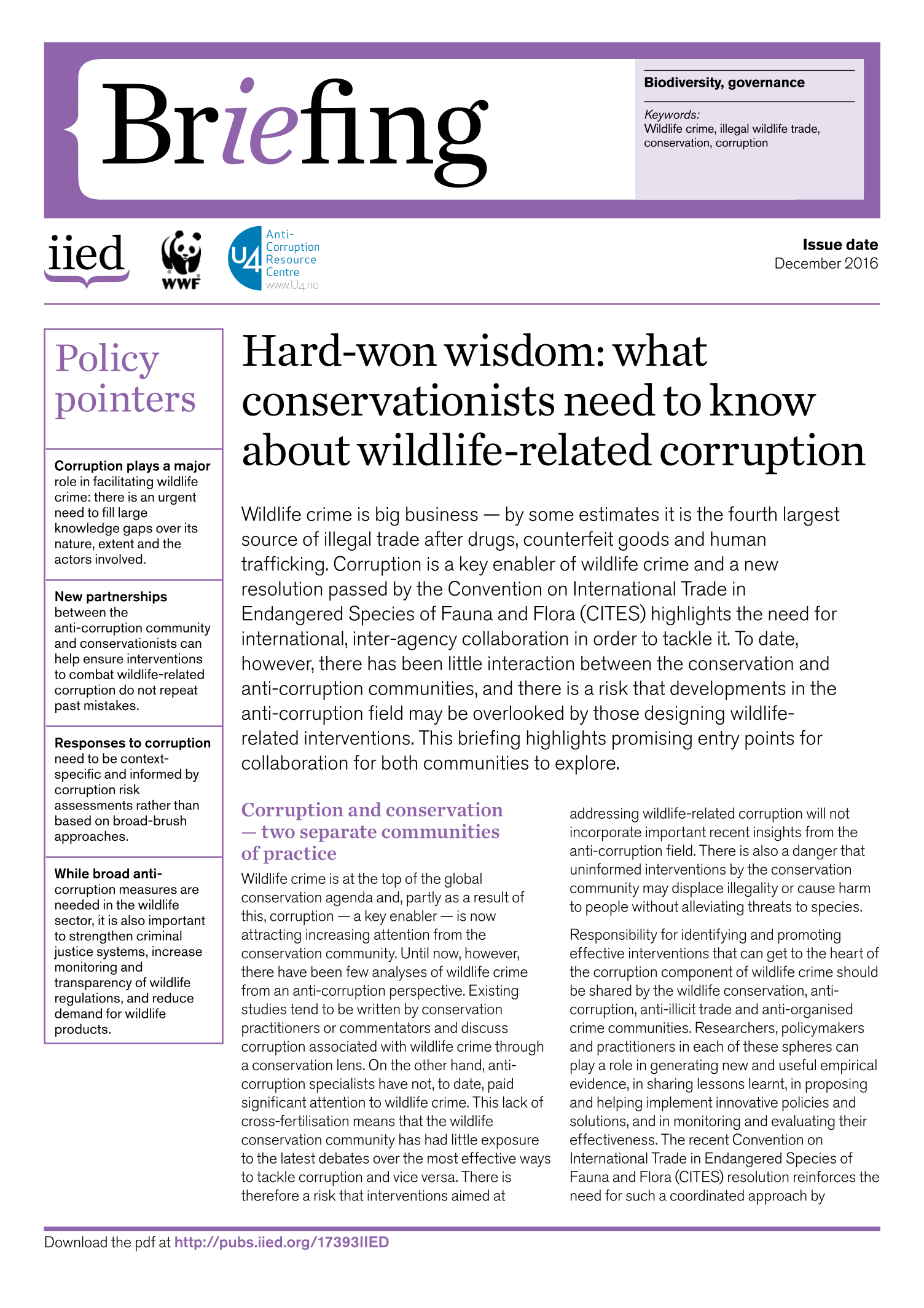U4 Brief
Hard-won wisdom: what conservationists need to know about wildlife-related corruption
Wildlife crime is big business — by some estimates it is the fourth largest source of illegal trade after drugs, counterfeit goods and human trafficking. Corruption is a key enabler of wildlife crime and a new resolution passed by the Convention on International Trade in Endangered Species of Fauna and Flora (CITES) highlights the need for international, inter-agency collaboration in order to tackle it. To date, however, there has been little interaction between the conservation and anti-corruption communities, and there is a risk that developments in the anti-corruption field may be overlooked by those designing wildlife-related interventions. This briefing highlights promising entry points for collaboration for both communities to explore.

Cite this publication
Roe, D.; Williams, A. (2016) Hard-won wisdom: what conservationists need to know about wildlife-related corruption. IIED Briefing, December 2016
Disclaimer
All views in this text are the author(s)’, and may differ from the U4 partner agencies’ policies.
This work is licenced under a Creative Commons Attribution-NonCommercial-NoDerivatives 4.0 International licence (CC BY-NC-ND 4.0)

